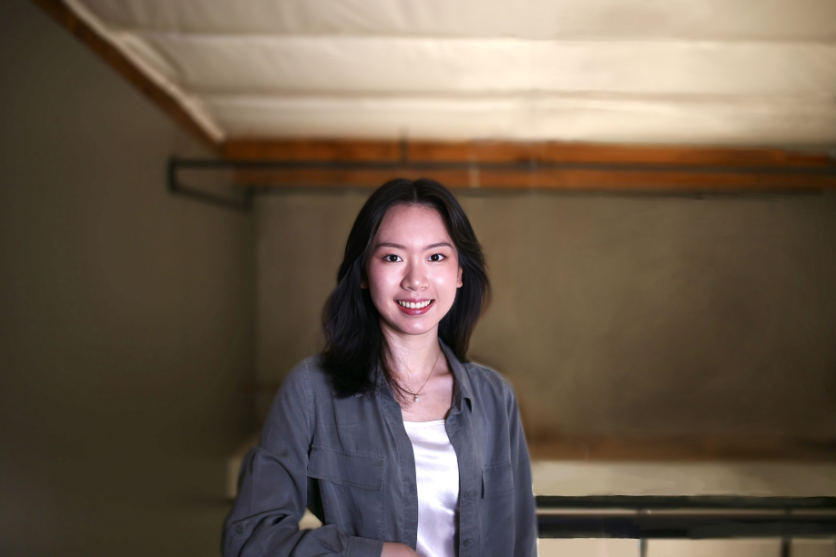
The role of Science, Technology, Engineering, and Mathematics (STEM) in the future of humanity is widely acknowledged. From life-saving medical breakthroughs to the recent algorithms powering every digital aspect of modern life, there's no denying the impact of these disciplines.
Despite this, a quiet crisis has been unfolding in the form of a mass exodus of talent. From young, untested undergraduates finding their way on college campuses to seasoned professionals—particularly women—with established careers, the leaky STEM pipeline continues to raise concerns.
Research shows that women account for only 29% of the STEM workforce in the UK, 35% in the US, and 29.2% in over 146 countries globally. This is not for lack of trying; for many years, different bodies have launched campaigns to increase female participation in STEM with varying degrees of success.
"While the percentage of female STEM graduates entering into STEM employment is increasing with every cohort, the numbers show that the retention of women in STEM, even one year after graduating, sees a significant drop," said a recent report from the World Economic Forum.
As a young woman in STEM, Maggie Li, a Biomedical Systems Engineering student at the University of Toronto, has had to face these challenges head-on. A rising talent in quantum computing and longevity research, Maggie knows what it feels like to be the only female in a room.
She also knows what it takes to succeed despite that.
Building Bridges Through Interdisciplinary Work
"I have been involved in many nascent fields, with most projects being highly interdisciplinary," Maggie reflects.
While many are overwhelmed at the thought of being pioneers in tough disciplines, Maggie relishes the challenge. Her interdisciplinary work is as much about cutting-edge science as it is about building bridges. As a two-time Emergent Ventures grantee and Masason Foundation scholar, Maggie's efforts span quantum computing, biomedical engineering, and aging biology—fields that often operate in silos.
Maggie sees things differently and believes real breakthroughs happen at intersections.
This belief dates back to her early days working at Loyal as an intern on canine aging research, such as the Healthspan Study, which sparked her interest in the subject. She later transitioned to a part-time role on the computational biology team in the organization and became a Time Initiative fellow.
Her path wasn't just about learning but sharing, too. From the ground up, Maggie built a community in Toronto focused on longevity and regenerative medicine, the Longevity Research Circle, galvanizing students, experts, and community members in this emerging field.
A Pioneer in Longevity Research and Community Building
Earlier this year, Maggie and her co-organizers hosted the first-ever aging biology symposium in Toronto, attracting a student audience from across Canada, including the University of Waterloo (Kitchener) and McGill University (Montreal).
The event included twelve international guest speakers, two industry panels, and ten talks from student trainees. The conference will continue to run annually, with the team scaling smaller events across Toronto and Montreal to reach and connect with more students.
Maggie's career in quantum computing followed a similar path. She was a core member of the Quantum Open Source Foundation, where she helped build the organization's mentorship program after being a mentee in its inaugural cohort. This was an ideal training ground for developing leadership skills and community building.
"Maggie's leadership and contributions to the Quantum Open Source Foundation's mentorship program have been instrumental in bridging the gap between students and professionals, fostering ambitious research projects while creating inclusive opportunities for underrepresented groups in STEM. Starting as a mentee in the inaugural 2020 cohort, she played a key role in shaping the program's early development, helping it grow into what it is today with nine cohorts to date," said Mark Fingerhuth, Co-Founder of Quantum Open Source Foundation and Co-Founder at ProteinQure.
Maggie values her involvement in student initiatives and kickstarter projects, many of which she pursued without direct personal gain. Her goal has always been to pave the way for future generations who will follow in her footsteps.
Paving the Way for Future Generations
"It requires a genuine investment of time, effort, and capital to build community and talent pipelines," Maggie explains.
Beyond managing the finances and logistics, Maggie has dedicated hundreds of hours to mentoring students in various fields as a way of giving back through the Longevity Research Circle. She acknowledges she's been fortunate to experience opportunities many others haven't, so she's always doing her part to make STEM more accessible, particularly to female students.
"Maggie has co-created a unique community of like-minded, interdisciplinary individuals with a shared interest in aging and longevity. By fostering interaction and discussion of shared interests, the Longevity Research Circle creates organic opportunities for interdisciplinary collaboration. This type of interaction is vital for new scientific innovations and translation to take root and give rise to new initiates, new ideas and new home-grown start-ups. Earlier this year in January, I had the privilege of being invited as a guest speaker at TABS. It was without question my favorite meeting of the year," said Olena Zhulyn, Assistant Professor at the University of Toronto and Scientist at the Research Institute at The Hospital for Sick Children (SickKids).
Maggie stands out not because she started with all the confidence in the world but because she gradually built it up through action, determination, and community.
Maggie Li's Vision for the Future of STEM
As her multidisciplinary career continues to grow, Maggie remains committed to empowering others and supporting a new generation of scientists. For her, STEM isn't just about pushing the boundaries of scientific innovation.
With every community she builds, Maggie Li is paving the way for a world where STEM no longer feels like an exclusive club, and everyone feels confident enough to chase their dreams.
ⓒ 2026 TECHTIMES.com All rights reserved. Do not reproduce without permission.





